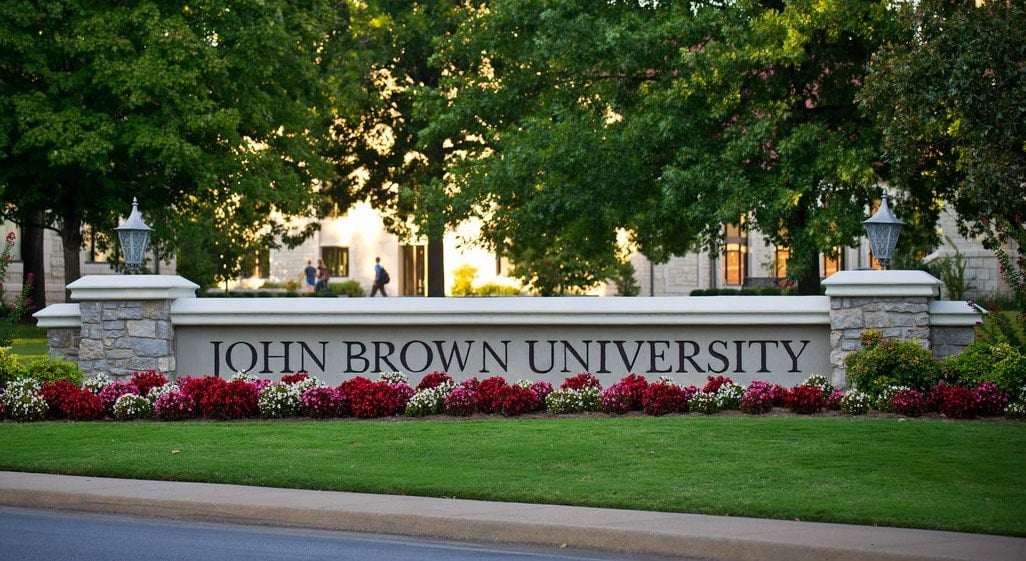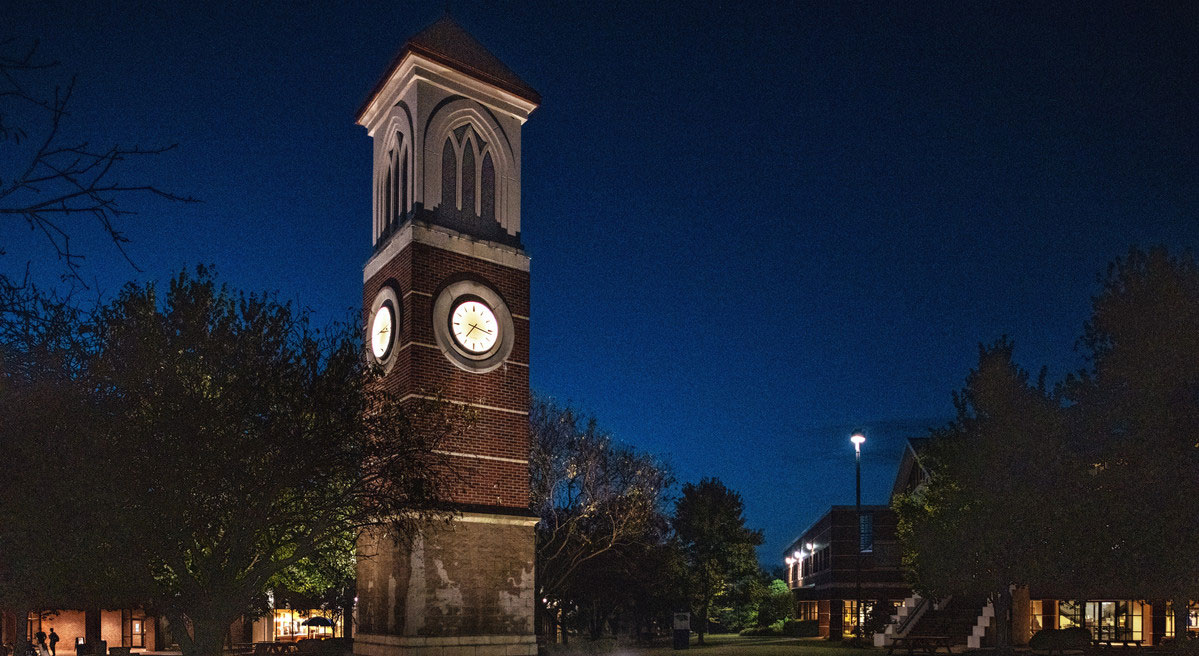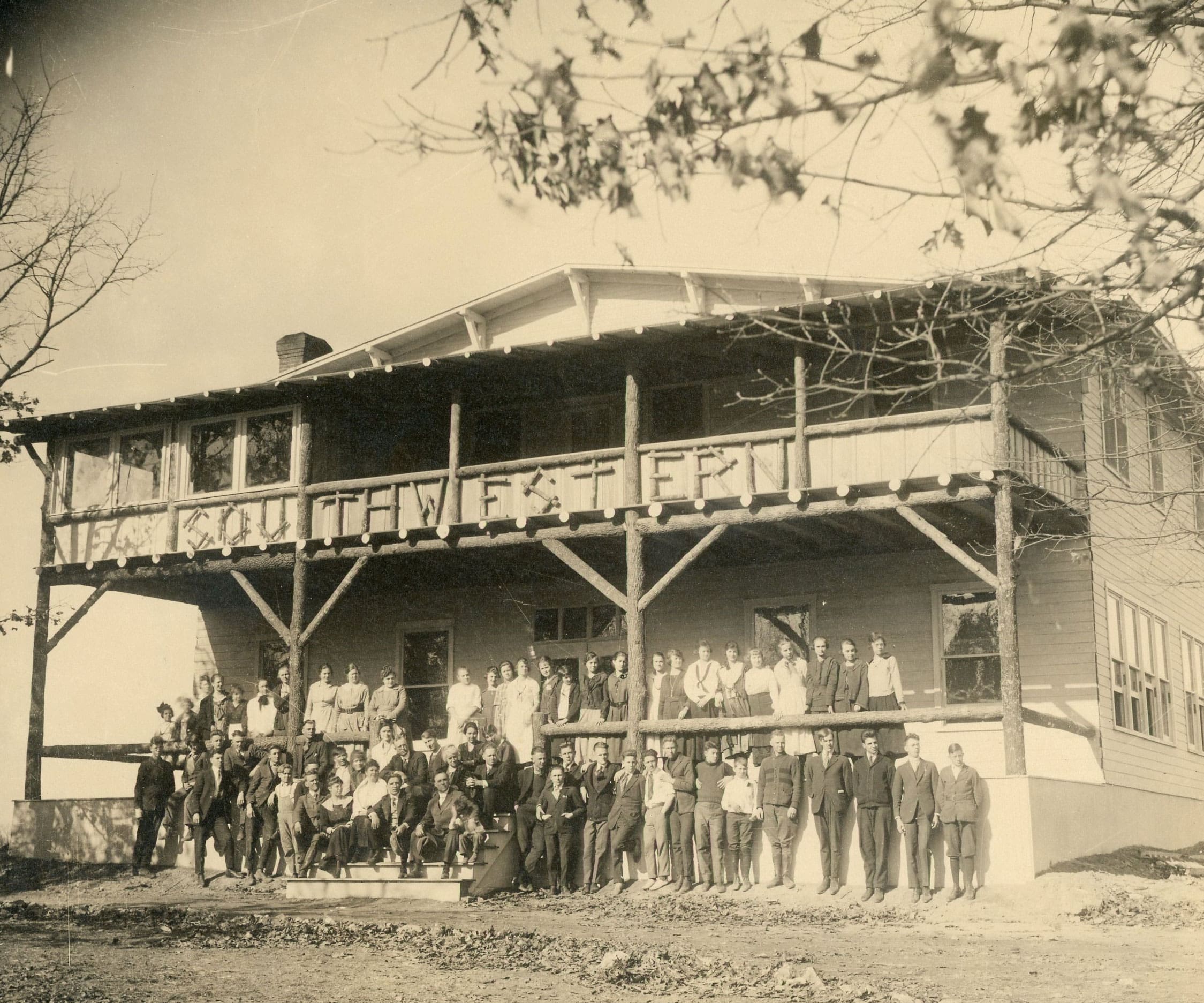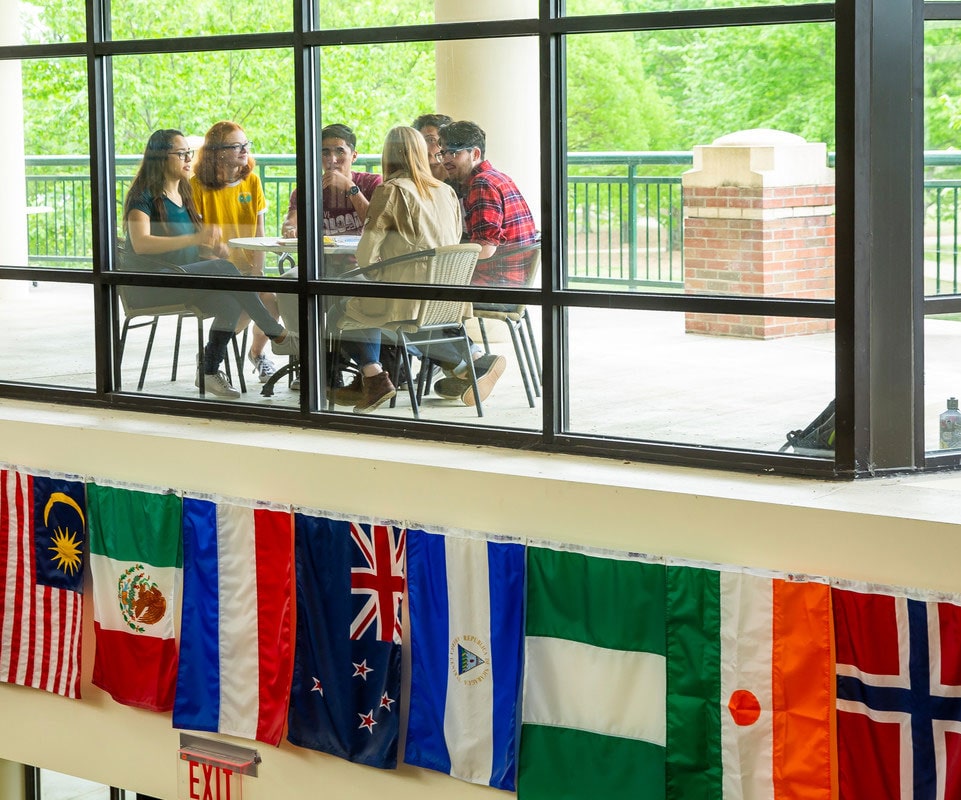- Give
- Alumni and Parents
John Brown University
2000 W. University St., Siloam Springs, AR 72761479-524-9500
jbuinfo@jbu.edu
Consistent with its evangelical identity, JBU’s board of trustees has articulated institutional commitments on certain theological issues or university practices, including our Biblical understanding of diversity, of marriage, friendship and human sexuality, of creation, and of non-partisanship; and the role of chapel at the university. These institutional commitments are not the only or even primary way that JBU understands its evangelical identity, but they answer the questions that we are most frequently asked. With God’s help, JBU seeks to live out these commitments faithfully and humbly with grace and truth.
JBU's Biblical Understanding of Diversity and Intercultural Engagement
JBU’s mission is to prepare people to “honor God and serve others.” It is critical to this mission to prepare the next generation of Christian leaders to learn from and about, and lead and serve in, increasingly diverse communities, both regionally and internationally. It is also crucial that we achieve these goals in the spirit of unity that reflects our shared Christian faith. In the classroom, JBU allows students to engage academic material with a global mindset, considering voices from a wide range of people and experiences. Outside the classroom, students, staff, and faculty endeavor to engage, share and celebrate each other’s differences. We believe that this unity in diversity reflects the design of God’s Kingdom and brings us to a fuller understanding of God and a deeper relationship with Him and one another.
JBU centers its commitment to unity in diversity and intercultural engagement in its obedience to the full witness of the Bible and not in any contemporary political, cultural, or academic theories. God himself reflects the goodness of unity in diversity in the mystery of his trinitarian identity. God is one God yet exists as three persons, Father, Son and Holy Spirit (2 Corinthians 13:14; Matthew 28:19). This triune God created all human beings, both male and female, in his image, so we should reflect the unity in diversity of God’s identity in our lives and institutions. Moreover, since God created all human beings in His image, they possess inherent dignity and worth and should be treated equally as image-bearers (Genesis 1).
Sin has marred the realization of this ideal on earth, but the Bible is clear that this unity in diversity remains a defining feature of God’s creation and Christ’s future kingdom. In his covenant with Abraham, God promises that all “the peoples of the earth” will be blessed through his descendants (Genesis 12). When the prophets speak of the coming Messiah, foreshadowing the New Testament, they mention that “all nations and peoples of every language would worship him” (Daniel 7), that his salvation will “reach to the ends of the earth” (Isaiah 49 and 52), and that his “rule will extend from sea to sea” (Zechariah 9).
Moreover, in his ministry, Jesus crossed the cultural boundaries of his day to engage and befriend, among others, the rich and poor; women and men; sick and healthy; ceremonially clean and unclean; and Jews, Samaritans, Romans, and Gentiles. (Matthew 8 and 24; Luke 4 and 17). He also prayed for unity in the church that reflected his unity with God (John 17). Before his ascension, he called his disciples to make disciples of all nations (Matthew 28) and take the gospel to the ends of the earth (Acts 1), a calling affirmed in the indwelling of the Holy Spirit among people from many nations at Pentecost (Acts 2), the conversion of the Ethiopian eunuch (Acts 8), the conversation of Peter and Cornelius (Acts 10), the claim of Paul that the mystery of the gospel is that it is also for Gentiles, not just Jews (Ephesians 3), and the vision for equality and unity among the children of God (Galatians 3). Finally, John predicts that the one, unified, resurrected church will be “people from every nation, tribe, people and language” (Revelation 7).
In light of this Biblical witness and in keeping with Jesus’ prayer that God’s kingdom would come on earth as it is in heaven, we aspire for JBU to be an authentically diverse and unified community in which all people can grow, contribute, and flourish in keeping with God’s design for our lives as revealed in Scripture. Students, staff, and faculty bring a diversity of thoughts, life experiences and cultural expressions to JBU because of their different personal backgrounds, including how their lives have been shaped by their ethnicity, race, nationality, cultural heritage, third-culture experiences, age, language, sex, marital status, denominational background, ideological viewpoints, ability, and financial resources. We welcome, value, and celebrate these differences in people’s lives as they are lived out consistent with Scripture (for more details about JBU’s expectations for living consistently with Scripture, see Employee Expectations, Community Covenant, and Student Handbook). We also recognize that Christians can disagree about the specifics of how best to achieve unity in diversity, so we encourage people to engage in these conversations with humility and respect.
In some ways, this commitment is not new to JBU. The university was founded in 1919 to educate women and men from rural areas who could not otherwise afford higher education and came from different denominational traditions — a vision broader and more diverse than many higher-education institutions at that time. Later, JBU built on that vision with programs to support children of missionaries, Central American students, and international students (International Student Life). More recently, JBU has developed programs and partnerships to include students with a broader range of academic abilities (Academic Assistance and ConnectionsU) to welcome and retain Hispanic/Latino American students (Creciendo Juntos), and to support students through a multicultural community and develop Christian leaders with intercultural skills (Mosaic).
Even as we celebrate the broadening of the original vision, we acknowledge and lament that JBU has fallen short in the past and present in fully welcoming, honoring, respecting, encouraging, and educating people who represent God’s kingdom in all of its diversity. In short, JBU failed to obey Christ’s command to love our neighbors (Matthew 22:37-40). It is a failure that misses the mark of God’s justice and causes harm to people made in His image and to JBU’s mission. As a Christian institution, we repent and commit to strive to do better (Daniel 9 and Ezra 9). We strive to live out this commitment faithfully while recognizing that it is only possible with God’s help.
In our educational work, we aspire to equip JBU students to be leaders in the church and the world, leaders who listen well to others, who engage respectfully with people who are different from themselves, who celebrate the good that is revealed in God’s varied creation, who are interculturally competent, and who affirm the truth of Christ with both clarity and charity. We seek his guidance and blessing to reflect the unity and diversity of his church in all that we do to fulfill our mission of preparing people to “honor God and serve others.”
JBU's Understanding of Marriage, Friendship, and Human Sexuality
God created human beings in his image as male and female (Genesis 2). He created marriage as a covenantal, lifelong relationship between one man and one woman where sexual intimacy is shared and celebrated in order to reflect his faithfulness and self-sacrificing love for his people (Genesis 2, Ephesians 5, Revelation 19 and 21). God also created and honored faithful, abiding, non-romantic friendships to encourage all people’s relational and spiritual flourishing (John 15). Accordingly, JBU affirms the Biblical teaching that Christian marriage is a covenantal, lifelong relationship between one man and one woman, that intimate sexual relationships are reserved for one man and one woman in marriage, that single people should live celibate lives, that people should enter into deep, enduring non-romantic friendships with others to flourish as people made in his image, that God made human beings in his image as male and female, and that people should live with integrity and congruence between their gender identity and their birth sex. (Genesis 2, Matthew 19, Romans 1, John 15, I Corinthians 6-7, Hebrews 13). JBU has employment and student life policies to implement these convictions and policies for single-sex residence halls, floors, locker rooms, athletic teams, and restrooms.
JBU also recognizes the complex and challenging experiences of some people who have questions about their sexuality or gender in the context of their faith or who have fallen short in their actions in light of these Biblical standards. We believe all people are created in the image of God and loved by God, and should be treated with love, respect, grace and dignity (Genesis 2, John 7-8). Accordingly, we seek to offer pastoral support, protection, and emotional and spiritual care to people who find this Biblical teaching difficult while still encouraging them to follow God’s design for their lives and upholding the institution’s Biblical values and policies (Galatians 6). In all situations, JBU seeks to reflect both God’s truth about how we should live and God’s redemptive grace through confession, repentance, and restoration, with separation from the institution happening only for significant or persistent behavior inconsistent with JBU’s policies. (For more details, see Employee Expectations, Community Covenant and Student Handbook)
JBU's Understanding of Creation
We affirm that God created the world out of nothing with great joy. He made human beings in his image, including the historical Adam and Eve. Human beings are distinct from the rest of creation in their image-bearing, stewardship responsibility toward creation, and role in God’s redemptive plan in history (Genesis 1-3, Isaiah 45, Psalm 8, John 1, Romans 8, and Colossians 1). We affirm that the Bible is inspired and the only infallible, authoritative word of God (II Timothy 3). The Bible speaks about the origins of the world, and we take seriously our task of interpreting Scripture’s witness of God’s work of creation. In other words, we affirm the special revelation of Scripture. God also gives witness to himself through his created world. Accordingly, we take seriously the task of interpreting the natural world’s witness of God’s work, and we readily engage and examine all of the methods and findings of science to understand that witness. In other words, we affirm natural revelation as a source for understanding God and his world (Psalm 19, Romans 1 and 10). Human beings are both finite and fallen; therefore, our interpretations of God’s word and his world concerning this issue have the potential to be limited and partial (Genesis 3). Recognizing our limitations, we encourage people at JBU who engage in discussions about creation to do so with humility and charity towards others who may hold differing views within these Biblical parameters (John 13, Galatians 6, I John 4).
JBU's Position of Non-Partisanship
JBU is non-partisan, both by law and by Christian conviction. As a 501(c)(3) nonprofit educational institution, JBU is “absolutely prohibited from directly or indirectly participating in, or intervening in, any political campaign on behalf of (or in opposition to) any candidate for elective public office” (IRS guidance). Moreover, by conviction, we know that Christians are first, citizens of heaven, second, citizens of a country, and third, if at all, members of a political party, so our Biblical and theological convictions should first orient our political and cultural positions (Matthew 22, Ephesians 2, and Philippians 3). We are deeply grateful for the many blessings of living and working in the U.S., even as we recognize its inevitable failings as a country led by fallible human beings. Christians should learn about and be involved in politics and political parties for the common good but in ways consistent with our Christian witness and practice (Jeremiah 29). We encourage everyone in the JBU community to examine political positions in light of Biblical teaching, to listen well to others, and to discuss political issues with Christian charity, gentleness and respect whenever possible. Recent surveys show some people are increasingly identifying as evangelicals even though they rarely, if ever, go to church (from 16% in 2008 to 27% in 2020), which suggests to some writers that the term “evangelical” is increasingly viewed as first a partisan term rather than a religious term (see Burge). JBU remains committed to evangelical as a theological term that characterizes our historical Christian mission and identity, particularly in our confused and polarized cultural and church context.
The Role of Chapel at JBU
JBU offers chapel three times a week, Tuesday and Thursday mornings from 10:30-11:15 a.m. and Sunday evenings from 9:00-10:00 p.m., a service known as “The Gathering.” The purpose of chapel at JBU is to put worship – singing God’s praises, reading and teaching of Scripture, praying for the needs of the community and world, and giving witness to God’s work in the world -- at the center of the academic and residential mission of the university. As JBU’s Chaplain Keith Jagger says, chapel interrupts the academic schedule to remind us that worshipping God orients our life and work at JBU.
JBU organizes its chapel schedule so that JBU faculty and staff speak on Thursdays in a series that focuses on a book or books of the Bible. External speakers from the global evangelical church speak on Tuesdays with more discretion on their topic. However, we ask all external speakers to organize their chapel talk around a text from Scripture and to be in full accordance with JBU’s statement of faith and community covenant. JBU students are the speakers at the Gathering on Sunday night. We do this intentionally to allow students to explore their potential calling to various ministry roles and share with their peers how God works in their lives. We expect student speakers to work with the Chaplain’s office to prepare their chapel talks, and we vet those talks as much as possible.
As JBU requires students to attend class because it is central to our academic mission, we also require students to participate in chapel because of its importance to our collective academic life as a Christian university. Students are expected to attend at least 21 chapels each semester from about 40 chapel opportunities. Many students exceed the minimum because they find the chapel rhythm a helpful spiritual discipline. On rare occasions, we use a Tuesday or Thursday chapel slot for a speaking event that would not focus on worship (e.g., a writer’s conference speaker). When we make that choice, we identify that event as a “convocation” to set the proper expectations for the audience.
Chapel is one of many venues for Christian formation at JBU. The Office of Christian Formation also organizes small group Bible studies (Growth groups), conducts spiritual retreats, connects students with spiritual mentors, sponsors missions and encounter trips, encourages students to love and serve JBU’s neighbors (CAUSE ministries), and offers leadership opportunities for students (Student Ministry Leadership Team) (for more details, see Christian Formation). Neither chapel nor Christian formation activities substitute for participation in the local church, and JBU encourages students to be involved in a local church while they attend the university.






